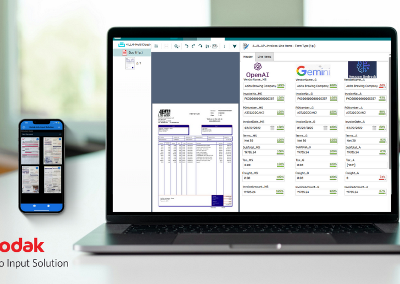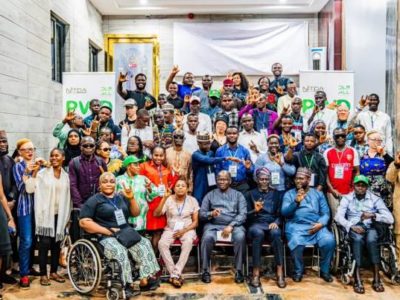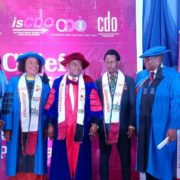African university students with ambitions for a career in the fast-paced world of technology are receiving welcome support in the form of the SAP Dual Study Program, a skills development initiative aimed at closing the digital skills gap among graduates.
According to Johann Pretorius, Director of Training at the SAP Training and Development Institute, the program is designed to give university students a competitive edge in pursuing various career paths among SAP’s extensive global customer and partner ecosystem.
“University degrees are considered a crucial step in building a long-term professional career, especially in Africa where formal qualifications are seen as an important part of building a globally-relevant career in the technology field,” says Pretorius. “In addition to obtaining their university degrees, graduates of the SAP Dual Study Program secure globally recognized SAP certifications and become Associate Consultants, being able to immediately apply their knowledge and skills at any of SAP’s more than 400 000 customers around the globe.”
World Bank data shows that enrolment in tertiary education in sub-Saharan Africa has grown from a low base of 1.4% in 1970 to just under 10% in 2018. However, research has shown that many graduates struggle to find employment, with South African university graduates often waiting up to a year before they successfully secure a job.
“To close the gap, SAP has introduced a number of initiatives aimed at supporting graduates by equipping them with in-demand skills and experience that bridge the gap between tertiary education and the formal workplace in an increasingly digital world,” says Pretorius.

Dual Study success at Stellenbosch University
Since its launch on the African continent in 2019, more than 210 Dual Study Program students have been or are still being enabled across nine partner universities in Africa. These include the University of Cape Town, Stellenbosch University and Nelson Mandela University in South Africa; the University of Strathmore in Kenya; Addis Ababa University in Ethiopia; Covenant University in Nigeria; Ghana Institute of Management and Public Administration; Valoris University in Ivory Coast, and Université Internationale de Tunis.
According to Dr Daan le Roux of the Department of Information Science at Stellenbosch University, there is a growing demand for suitably skilled graduates from the university. “A large number of organisations within our region use SAP technologies, and we have many consultancies serving these larger organisations. In the past, our graduates have only undertaken SAP training as part of internship programmes. It made sense for us to enhance our graduates’ employability by increasing their exposure to SAP as part of their degree programme.”
Most universities focus on teaching students fundamental principles of their chosen field of study, which often leaves little space for practical applications. “This partnership enables us to offer our students practical exposure to software from leading organisations such as SAP without us having to necessarily develop the associated expertise in-house,” says Dr le Roux. “Industry certifications also give students an edge over their peers when they apply for employment opportunities and ensures local industry gets access to the right skills.”

New Learning Hub offer free SAP resources
SAP also recently announced the launch of the SAP Learning Hub edition for SAP Next-Gen, a free educational offering for students and lecturers at universities that form part of the SAP University Alliances community. The SAP Learning Hub gives eligible students at member universities free access to critical learning content and resources to develop their SAP skills and prepare for certification.
“This new, free offering equips the next generation of digital talent with in-demand skills and gives students access to the same knowledge and opportunities as those provided to SAP professionals,” says Pretorius. “Eligible students will also have access to certification opportunities, including an SAP Global Certification online exam.”
In light of the fast pace of technological innovation, it is vital that learning content is regularly updated to ensure students graduate with relevant and in-demand skills. “Content for the SAP Learning Hub edition for SAP Next-Gen is continuously evolved to ensure learnings are forward-looking and that students are prepared to enter the SAP ecosystem with the optimal mix of work-ready skills and capabilities,” says Pretorius.
University students interested in finding out more about the SAP Dual Study Program can visit www.sap.com/mena/tdi






























